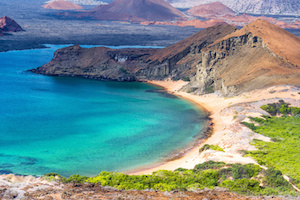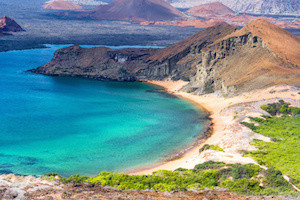Nature lovers are spoilt for choice when it comes to travel locations. Whether it’s animals, geography or natural wonders, this planet of ours is jam-packed full of amazing experiences.
Travelling to remote locations and extreme climates requires specialist knowledge and preparation. In many cases, you will require medical preparation, in the form of vaccinations or tests. Check with your GP and discuss what you may need to do before you leave.
Always follow specialist advice – there is a reason they are the experts. The goal for all travel is to be safe, stimulating and life-enhancing!
Here are a few of the best:
The Galapagos Islands
Lying six hundred miles off the coast of Ecuador, in the middle of the open ocean, the Galpagos Islands is a piece of heaven on earth. Based on black lava, and named for the native tortoises, there is an abundant array of wildlife. Due to its remote location and protected atmosphere, the wildlife are largely happy to share their home with careful visitors. Puerto Ayora’s Charles Darwin Research Station is a great place to learn about the history of the area.
Africa
In terms of wildlife watching, Africa is teeming with some of the most majestic animals on the planet, and is an incredible destination. From the awe-inspiring Great White Sharks who gather off the coastline, to the giraffes, elephants and big cats, a trip to Africa will leave you breathless.
The Amazon
The Amazon is the most ecologically diverse area on the planet. Rain forests are an ecosystem all on their own, and they contribute to keeping our entire planet functioning well. The birdlife, primates, insects and plant life are diverse and spectacular. The largest spiders and smallest birds in the world live in the Amazon. Eco-tourism is encouraged to publicise the plight of some of the animals affected by deforestation.
The Sahara
The animal and plant life is not as abundant in the desert, but for lovers of nature on an awe-inspiring scale, then a trip to the desert is a must. Over 1000 species of plants grow there, and did you know it is not the largest desert on Earth? Actually, Antarctica is! The countries whose boundaries share the Sahara have diverse cultures, and different customs than New Zealanders are often accustomed to, which offer great opportunities to learn.
Antarctica
As mentioned above, this is the largest desert on Earth – some parts of this frozen continent have not had rain for over two million years! Travel to this inhospitable climate is only for certain travellers, but anyone who visits is wildly inspired by the sheer scale of the place.










Join the Discussion
Type out your comment here:
You must be logged in to post a comment.